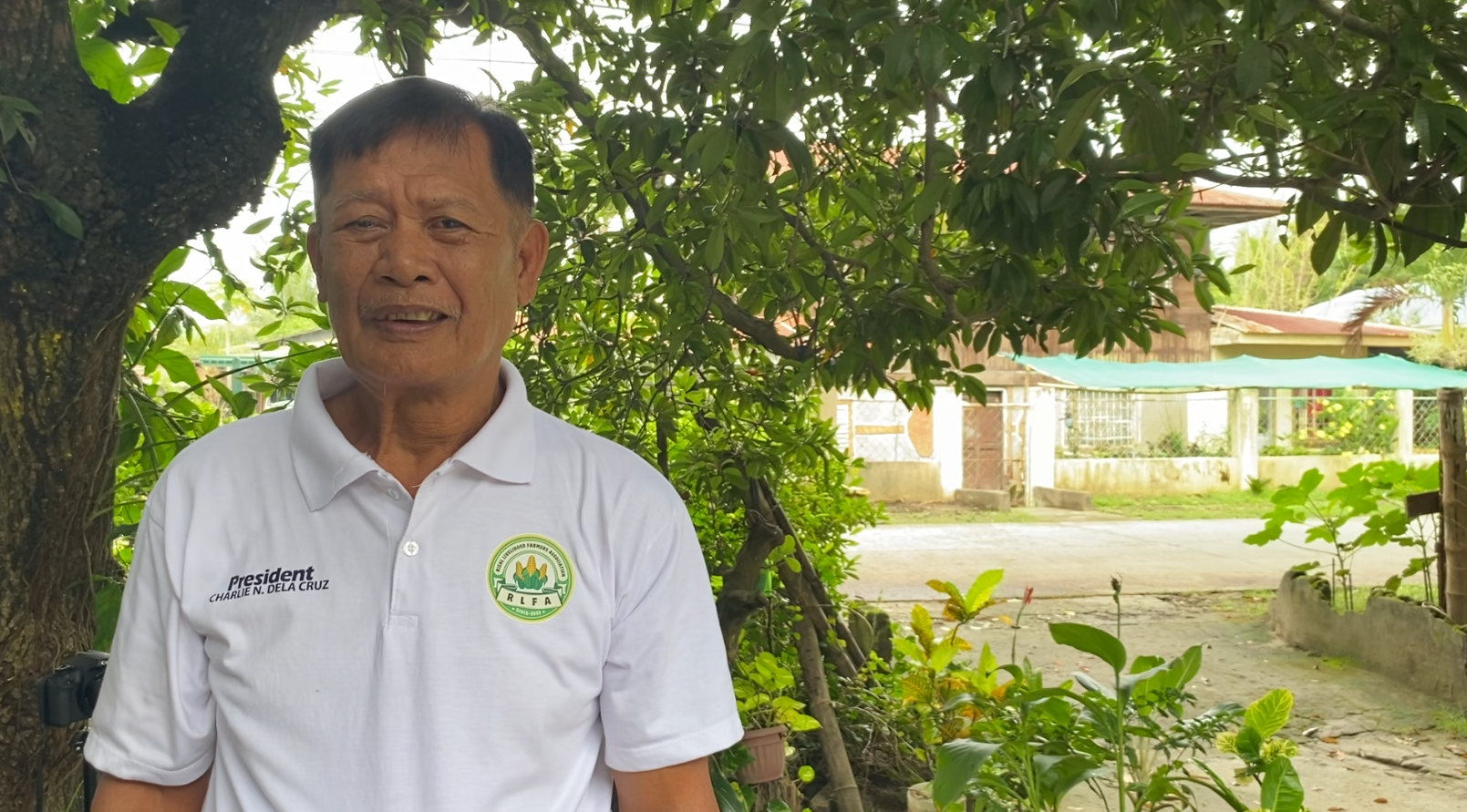For 66-year-old Charlie Dela Cruz, farming is his life story, marked by decades of perseverance, hardships, and hope.
With 44 years of tilling the soil behind him, Charlie, a resident of Barangay Rizal, Anao, Tarlac has seen firsthand how the ever-changing economy made farming more challenging with rising production costs forcing many farmers like him into debt.
“Kadakkelan ti gastos mi idi, ut utangen mi laeng,” Charlie recalled.
(Most of our expenses before were just borrowed.)
He shared moments where they often had no choice but to take loans from traders just to fund their corn production. But these loans came at a steep price—their harvests were practically as good as sold even before they were harvested.
“Idi agutangak kadagiti traders ngem nakatayan iti mais nga mula min. Kalpasan ti panag ani, alain da dayta ani mi iti presyo nga kayatda,” he added.
(I used to take loans from traders, but our corn crop was already tied to them. After harvest, they’d buy it at whatever price they wanted.)
But just when the future seemed locked in an endless cycle of borrowing and scraping by, an opportunity arrived from the Department of Agriculture’s Special Area for Agricultural Development (DA-SAAD) Program.
At first, Charlie admitted, he wasn’t entirely sure what to expect. But soon enough, the benefits became clear.
The Program provided his association, the Rizal Livelihood Farmers Association, with corn seeds, fertilizers, and essential farm tools, including a tractor and hose which are resources that eased their production costs and improved their operations.
But along with these tangible benefits came an even greater responsibility—leadership.
Earning the trust of his fellow farmers, Charlie was elected Chairperson of their association, leading 20 members. It was a role he embraced with humility, knowing full well the challenges that came with managing different personalities and perspectives.
“Daanin sa usapan, hindi sa init ng ulo,” he shared, reflecting his calm and fair leadership style.
(Resolve things through proper communication, not through anger.)
True to his word, Charlie found himself tested when reports reached him that one member of their group had allegedly sold the seeds and fertilizers meant for planting. But instead of resorting to accusations or anger, Charlie quietly investigated the matter.
His patience paid off when the member eventually admitted to the wrongdoing.
Rather than demand payment or humiliate the person, Charlie handled the situation with grace. He simply asked that the seeds and fertilizers be returned, explaining that failure to do so could result in their names being reported to the Registry System for Basic Sectors in Agriculture (RSBSA), possibly leading to disqualification from government programs.
“We have to protect these opportunities for everyone,” said Charlie.
Charlie and his association gained valuable knowledge through the Program’s training sessions, workshops, and seminars. From proper fertilizer application to effective pest control, these learnings translated into higher corn yields and a renewed sense of pride among the farmers.
For him, the impact of the Program goes beyond the fields. The modest farmhouse he is slowly building on his land stands as a symbol of what can be achieved when hard work is met with the right support.
Gone are the days when all their earnings went to paying off loans. Today, each peso is carefully saved, slowly transforming his long-held dream of a stable, self-reliant life into reality.###
